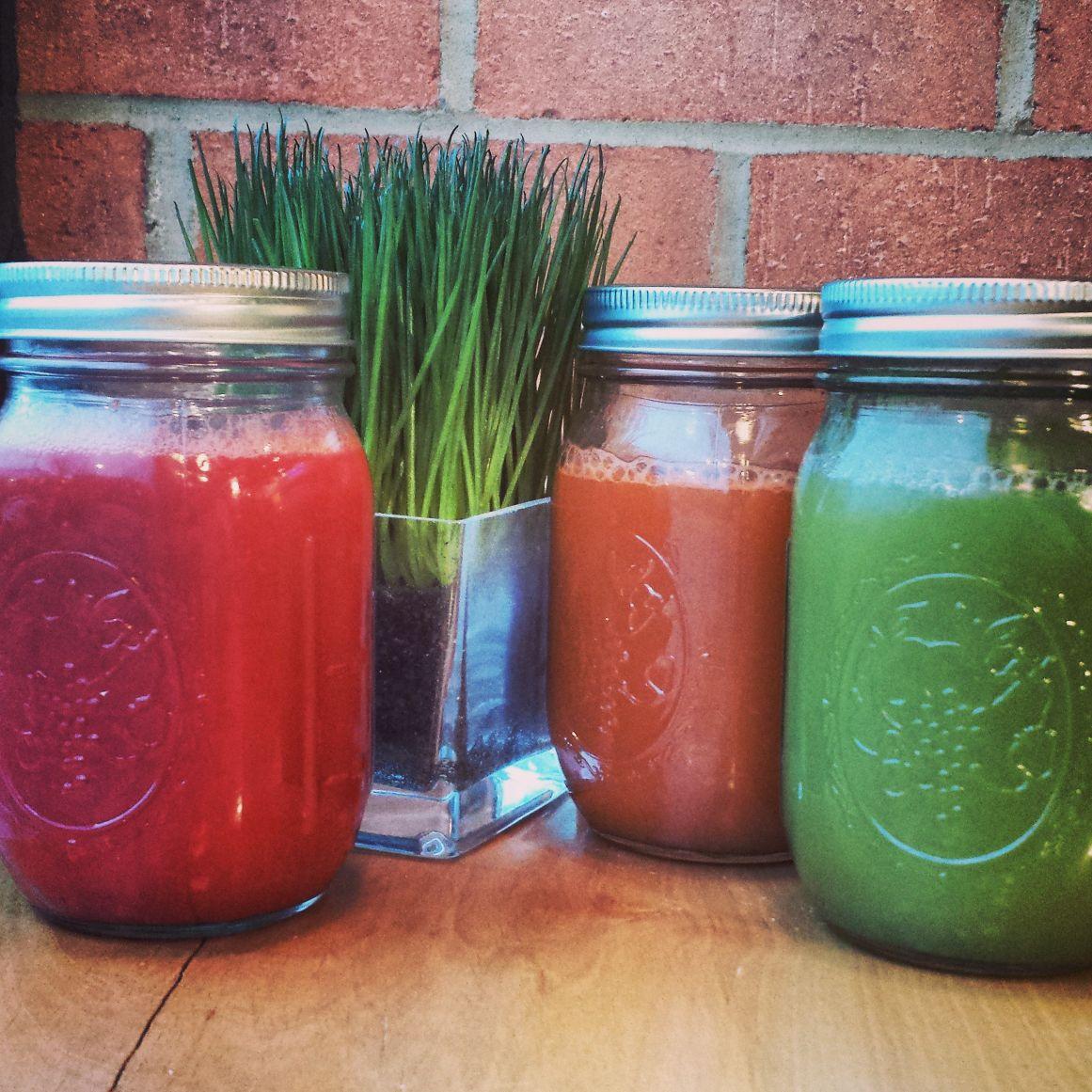Appalachian Juice Co. bring all-organic juices to Shadyside


With inexpensive options of fried or heavily processed foods on campus — not to mention a whole pizza for $5 — maintaining a healthy lifestyle in college can be a tall order.
But, at the Appalachian Juice Company — an organic juice and smoothie bar that opened in February on Walnut Street in Shadyside — owners Meghan Kosar and Scott Crytzer are looking to remove the stigma that eating healthy has to come with a high price tag, while also providing veterans with a source of employment.
“Going organic doesn’t have to be expensive. You’re not paying for the pesticides and fertilizers,” said Kosar, a former Pitt student who graduated in 2010 with a communication degree. “It’s so important to eat something that is healthy and nutritious, and we want more people to have that available to them.”
The business model behind the Appalachian Juice Co. began when Kosar and Crytzer started juicing extra produce from their small plot of land in Laurel Highlands, which is less than two hours southeast of Pittsburgh, and giving it to friends. The feedback was extremely positive, as were the effects of the organic juice.
“We really liked how you felt after drinking the juices. It was a clean kind of energy that gave you an extra boost to get you through your day,” Kosar said. “From there, the whole juice company was born.”
The Appalachian Juice Co. now serves all-organic juices and smoothies. Its raw, cold-press juicing system aims for fresh products. The term “raw” means that the fruits and vegetables are not pasteurized or exposed to other high-pressured processing that might remove some of their nutrients. The “cold-press” is in the juicer itself — rather than exposing the produce to heat and oxygen and, therefore, taking away some of the nutritional value, the juicer creates a cold pulp that is then pressed thin to make a smooth, non-pulpy, nutrient-rich juice.
“The point of it is that your body doesn’t have to waste any energy digesting it,” Kosar said. “It can be absorbed right from your stomach. It’s labor-intensive, but it gets the best product.”
Crytzer, a veteran, said the company’s veteran outreach program provides job-seeking veterans with a chance to learn sustainable, chemical-free farming.
Crytzer said the main goal of hiring veterans will be to educate them in Appalachian Juice’s methods of production and hopefully encourage them, through purchasing agreements through the juice company, to grow sustainable, chemical-free food.
“From my experience as a third-generation combat veteran, most veterans join out of a need to serve their community,” Crytzer said in an email. “What better way than to provide healthy affordable food that doesn’t pollute their bodies or the land they live on?”
The owners set up an online fundraiser on Indiegogo from Feb. 10 to March 15 to help fund the company’s plan for the farmland, including extended-season growing and workshops intended to show other local farmers the advantages of growing organic. They raised $2,420 of their $40,000 goal from 19 contributors.
“We call it juice-induced harmony,” Kosar said. “Providing healthy options for people at affordable prices and making positive changes in the food system and people’s lives.”
Located a short bus ride away from Pitt’s campus, the Appalachian Juice Co. storefront hopes to attract college students looking for healthier options. Some Pitt students already practice the lifestyle of eating organic to combat the use of pesticides.
“Eating organic helps reduce pesticide use, which negatively affects both the environment and our health,” said Leenie Baker, a sophomore majoring in theatre arts, political science and English writing who eats organic foods. “Our bodies are also very sensitive to pesticides, and there have been studies that show links between disease, like Alzheimer’s, and pesticide intake. Even foods touted as health foods… are often laden with pesticides and therefore possibly causing side effects we don’t even think of.”
The owners of Appalachian Juice Co. agree it’s difficult for college students to eat healthily, let alone organic. Although they focus on raising money for their farm and the veteran outreach program, they hope that their company can do its part to better the lives and diets of college students.
“Replacing a soda with a juice — it’s a small step that your body will thank you for,” Kosar said. “As college students, it’s really a great way to get a lot of nutrients.”
As a communication major, Kosar never imagined she would own an organic juice and smoothie bar and create sustainable farmland and opportunities for veterans.
“You just have to be open-minded about talking to people and talking about your passions,” said Kosar. “Always make time for the things you love, because you never know when the opportunity will arise to do something you are passionate about.”
Recent Posts
Review | Playboi Carti finally drops new album, ‘Music,’ after five years
Carti finally dropped, which means the longest-running joke in rap music is over. Playboi Carti…
Accounting students offer free tax filing assistance to Pitt community
The Volunteer Income Tax Assistance program, led by Pitt Business accounting students, offers free tax…
SGB promotes Sex Ed Week and encourages students to attend
At its weekly meeting on Tuesday evening at Nordy’s Place, Student Government Board raised awareness…
Pitt loses four players to the transfer portal
In the first two days of the NCAA basketball transfer portal spring cycle, Pitt has…
Take Madness | Elite Eight: 412, Just Outside of Philly regions
Welcome to the Elite Eight! After the first week, the initial field is narrowed down…
Water main break cuts water to Litchfield Towers, Amos Hall
Pitt Police said a water main break on O’Hara Street left several dorms on campus…
